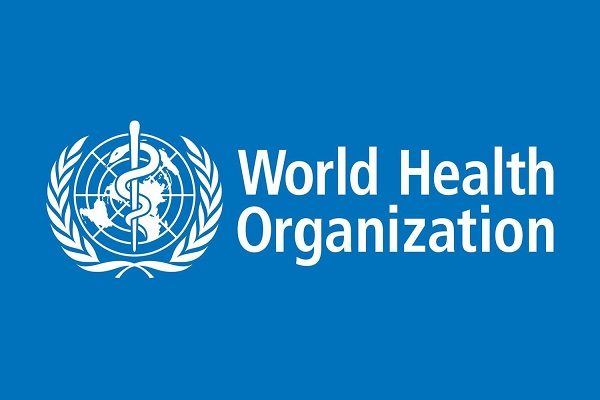The Federal government has reaffirmed Nigeria’s commitment to leading regulatory excellence on the African continent.
The government stance becomes imperative because, faced with the urgent need to strengthen its regulatory oversight of medicines and vaccines, Nigeria embarked on the World Health Organization (WHO) Global Benchmarking process in 2018, the Director General of the National Agency for Food and Drug Administration and Control (NAFDAC), Prof. Mojisola Adeyeye, said.
According to her, at the time, the country’s regulatory framework struggled with gaps in efficiency, capacity, and international credibility, issues that affected public trust, delayed access to quality-assured medical products, and hindered local pharmaceutical manufacturing.

She said the decision to undergo WHO benchmarking was a strategic response to these systemic challenges.
Adeyeye spoke recently in Abuja during the NAFDAC-hosted first in-person meeting of the WHO Maturity Level 3 (ML3) National Regulatory Authorities (NRAs), that focused on streamlining regulatory pathways, strengthening cooperation, and aligning with broader African Union health goals.
The in-person meeting brought together the heads of seven other WHO Maturity Level 3 regulatory agencies in Africa, along with experts from across the continent, to share experiences on reliance practices, identify common challenges, and review a draft operational plan for collaborative implementation.
Explaining that through the Global Benchmarking Tool (GBT), a WHO mechanism developed following the World Health Assembly’s 2014 Resolution 67.20, Adeyeye noted that NAFDAC was evaluated across more than 260 sub-indicators under eight core regulatory functions.
The regulatory functions, according to her included market authorization, surveillance and control, clinical trial oversight, inspection, laboratory testing, vigilance, licensing, and the strength of the overall regulatory system.
The outcome of that assessment was sobering: over 800 recommendations were issued, revealing the scope of reform required, she noted.
In the years that followed, she said NAFDAC implemented the recommendations with strong institutional will, technical investments, and support from partners.
“In 2022, Nigeria achieved ML3 status, signifying that its regulatory system was now stable, well-functioning, and capable of ensuring the quality, safety, and efficacy of medicines and imported vaccines.
“This milestone placed Nigeria among a select group of African countries to reach ML3—alongside Tanzania, Ghana, Egypt, South Africa, Senegal, Zimbabwe, and Rwanda.
“While the achievement reflected national progress, it also underscored a continental opportunity: to build a collaborative regulatory model that reduces duplication, increases access to quality-assured health products, and strengthens Africa’s health sovereignty”, she stressed.

To seize the opportunity, the DG noted that the eight African ML3 NRAs signed a Memorandum of Understanding (MoU) in February 2025, adding, “The agreement, aimed at formalizing a regulatory reliance mechanism, provides a framework for shared assessments, mutual recognition, and data exchange.
“It seeks to harmonize regulatory practices across borders and improve efficiency in approving medical products.
“The MoU aligns with key continental initiatives such as the African Medicines Agency (AMA), the African Medicines Regulatory Harmonization (AMRH) programme, the Pharmaceutical Manufacturing Plan for Africa (PMPA), the Partnership for African Vaccine Manufacturing (PAVM), and the Platform for Harmonized African Health Products Manufacturing (PHAHM).
“By establishing reliance practices, the ML3 NRAs aim to support local manufacturing, reduce the time and cost of product approvals, and accelerate access to quality medical products.
“This will support the African Union’s strategy and bring its Pharmaceutical Manufacturing Plan for Africa to reality.
“To oversee the implementation of this mechanism, a Steering Committee composed of the heads of the eight ML3 NRAs was inaugurated in Abuja”.
Mr. Richard Tendayi Rukwata, Director-General of the Medicines Control Authority of Zimbabwe, was elected as Chair, while Dr. Ali Ghamrawy of the Egyptian Drug Authority was elected Vice Chair for a two-year term.
The Committee is responsible for providing strategic guidance, resolving policy-level issues, and ensuring alignment with both national and regional regulatory priorities. Representatives from the AMA, AMRH, and Africa CDC serve as non-voting members, while support partners may participate as observers.
The Abuja meeting also explored integration with the upcoming Regulatory Information Sharing Portal (RISP), and the role of ML3 agencies in supporting AMA operations and the Africa CDC’s African Pooled Procurement Mechanism (APPM).
Through this collaboration, the ML3 NRAs are laying the groundwork for a unified regulatory space in Africa—one that reduces inefficiencies, ensures quality, and enables timely access to essential medicines and vaccines across the continent.



